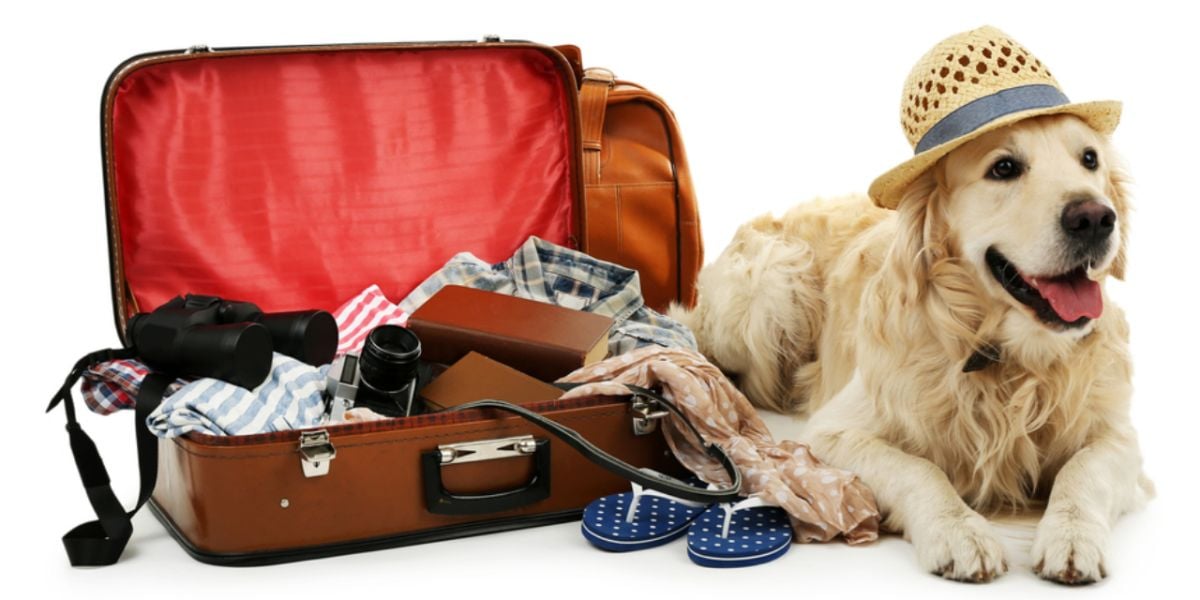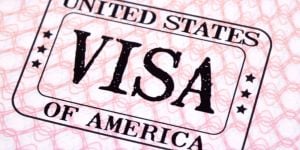
If you are a pet owner, you are most likely devoted to your pet, and a big consideration when planning an international move is whether your fur baby can come with you. However, depending on where you live and what kind of pet you have, there are entry requirements you must meet. Relocating pets is also a costly endeavor, so it's best to be prepared and understand all of the ins and outs. Be sure to consult both your airline and the Animal and Plant Health Inspection Service (APHIS) before attempting to relocate with a pet to the US.

Procedures for pet importation to the US
Moving with a pet to the United States involves adhering to specific procedures, and understanding the varying requirements of different airlines and US states is crucial. Most states mandate that dogs and cats possess a valid health certificate, an ISO-compliant microchip (one that meets international standards), and proof of rabies vaccination issued by a licensed veterinarian.
In 2024, the Centers for Disease Control and Prevention (CDC) introduced new permanent rules for all dogs entering the US. Under these rules, all dogs must be at least six months old when they travel, have their ISO-compatible microchip implanted before rabies vaccination, appear healthy upon arrival, and have an approved CDC Dog Import Form submitted electronically before travel. The form is valid for six months for repeat entries, provided the dog has not entered a high-risk rabies country in that period.
Dogs that are coming into the USA from high-risk rabies countries must present further documentation, including proof of a current rabies vaccine and microchip verification. In some cases, other documents may be required, and special procedures apply for dogs vaccinated outside the US or returning after visiting high-risk countries.
The new rules do not apply to cats. However, some states and airlines have different requirements, so it is important to research all relevant regulations before organizing travel.
Microchipping and identification for pets in the US
Microchipping plays a pivotal role in the relocation process. Remember that the microchip must be implanted before the rabies vaccination is administered, and the number listed on the vaccination certificate must match the pet's health and import documents. Only ISO 11784/11785-compliant microchips are accepted for entry to the USA. Please make sure to check your pet's microchip details (name, address, and phone number) are current.
Vaccinations and health certificates for pets in the USA
Comprehensive vaccinations and health certificates are non-negotiable components of relocating with a pet to the US. The rabies vaccination is a key requirement, and its certificate should meet specific criteria outlined by US authorities. Beyond rabies, staying informed about additional health considerations and vaccinations, depending on your pet's species and origin, is essential. Ensuring that your pet's health documentation is accurate and meets US standards is crucial for hassle-free entry.
Even though the CDC does not actually require a general health certificate for pet entry, be aware that most US states and airlines do. A health certificate issued by a USDA-accredited veterinarian is strongly recommended for all pets.
The CDC has also launched a “DogBot” tool, an online questionnaire that generates a personalized list of requirements for bringing a dog into the United States.
Pet owners should begin the import process early, ideally 30–90 days before travel, to allow time for vaccinations, document approval, and submission of the CDC Dog Import Form .
Bird and other pet importation regulations in the US
The US has stringent regulations regarding pet birds. Importing a bird of non-American origin requires a certificate from the United States Department of Agriculture and a health certificate from a certified veterinarian in your home country. Imported pet birds may undergo a mandatory 30-day quarantine. Understanding and complying with these regulations ensures the safe and legal relocation of feathered companions.
USDA APHIS regulates all bird and exotic animal imports. Be aware that many species, particularly poultry, game birds, and other commercially bred birds (ducks, pigeons, chickens etc), are subject to agricultural importation requirements and may not ever qualify as “pets” under APHIS rules. Exotic pets, including reptiles and amphibians, can have additional restrictions. Always check with APHIS procedures first before looking into transportation options.
Pet travel considerations for the USA
Pets can be transported by plane in-cabin, in the cargo hold, or via a licensed commercial shipper. The size and breed of the pet will determine the method of shipping. Be sure to check travel restrictions with your airline or your travel agent, as special conditions could apply to the number and type of animals allowed on the flight. In general, a place for your pet should be booked well in advance of your move date.
Take special care to make sure your pet is installed in a comfortable cage as per the animal's size and airline requirements. Make sure as well that your pet will have ample access to water and even food, and consult with your veterinarian if a relaxation aid is recommended. Relocating a pet can place huge stress on the animal. If your pet is old or unwell, it's important to consider whether this is the right choice for your pet.
When relocating with a pet, it's important to remember that there are two separate processes to manage: organizing travel with your airline and completing the importation paperwork with the CDC and APHIS. These steps don't overlap and can be quite confusing and documentation-heavy. Because of this, many people choose to work with a licensed international pet mover who can coordinate flights, prepare crates, and handle documentation to ensure everything is compliant and above board. This can save time and reduce stress, especially if you're travelling from or through a high-risk rabies country.
Some pet owners choose to take out international pet travel insurance to cover flight delays, medical issues, or rebooking costs in case of document problems.
Costs of pet importation to the USA
It's hard to provide figures on costs because these differ based on the type of pet and the country of origin from which it is being imported. However, be aware that bringing pets to a new country tends to be costly. As a rough guideline, you should budget at least USD $1,000–$2,000 for a straightforward pet relocation from a low-risk country and potentially USD $ 3,000–$ 5,000+ if the origin is a high-risk rabies country, the size of the animal is large, or any special logistic or quarantine conditions apply.
While a DIY move might seem cheaper upfront, using a professional pet relocation company can often turn out to be more cost-effective when you factor in potential complications, time spent on organizing the process, and the risks you face in getting it wrong. There are a lot of resources online and advice available from people who have successfully imported their pets, which can provide good advice around how to make your decisions. Pet importation companies can also provide quotes and consultations.
Your pet's arrival in the US
On arrival in the United States, you must declare your pet on your customs form. When you go through customs, an official will review your paperwork and inspect your pet. The US authorities may deny entry to your pet if it lacks proof of necessary vaccinations or shows signs of an infectious disease. Further examination by a licensed veterinarian may be required at your expense.
All cats and dogs arriving in the state of Hawaii and the territory of Guam, even from the US mainland, are subject to locally imposed quarantine requirements.
In all other states, quarantine on arrival is uncommon for cats and dogs that meet CDC and APHIS standards. However, birds and some exotic animals are still subject to mandatory quarantine. Pets arriving with incomplete paperwork may face delays, inspection fees, or temporary holds.
Useful links:
Bringing an Animal into the U.S.
US Department of Agriculture
IPATA Pet Shippers: Air and Ground
We do our best to provide accurate and up to date information. However, if you have noticed any inaccuracies in this article, please let us know in the comments section below.








